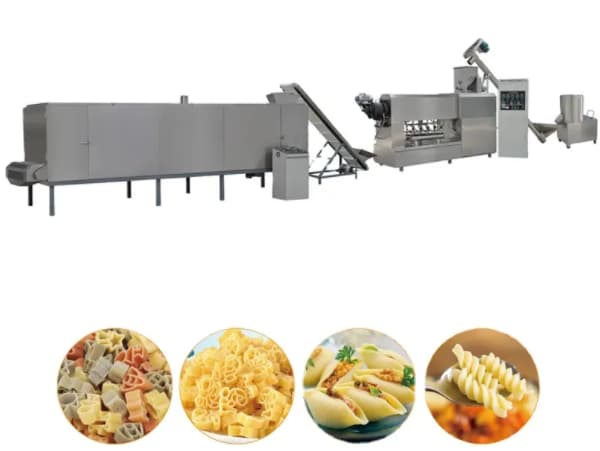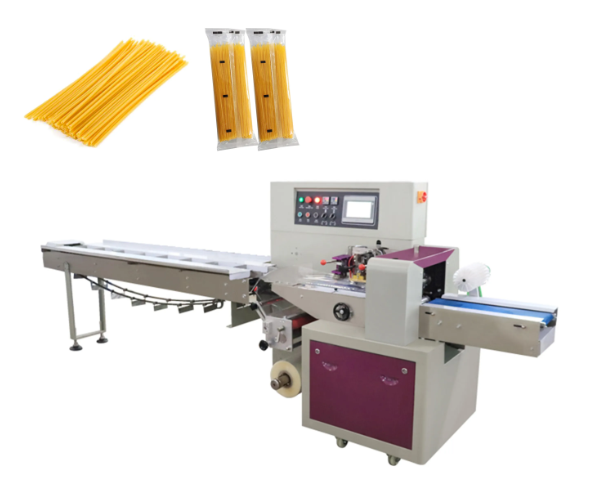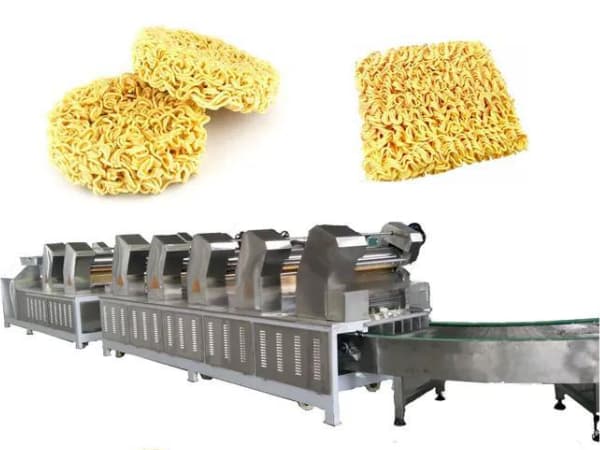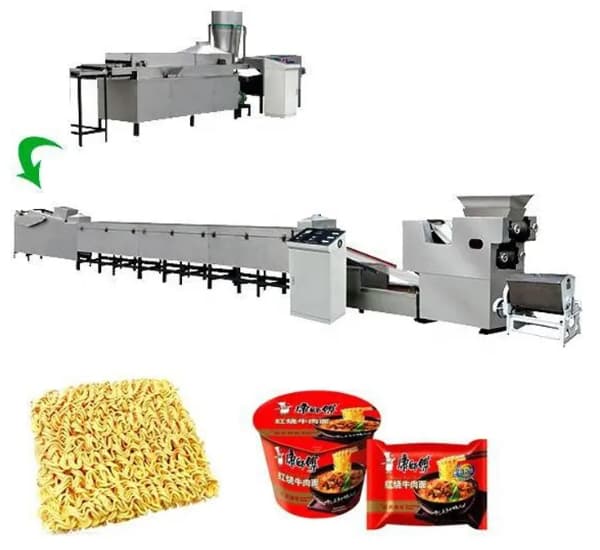The food industry has evolved significantly in recent decades, especially in the production of processed foods such as pasta. One of the key factors to achieve efficiency, consistency and scalability in this industry is the use of Industrial Machines for Pasta. These machines allow producing large amounts of pasta automatically, reducing costs and guaranteeing the quality of the final product.
In this article we explain everything you need to know about industrial machines to make pasta: types, characteristics, benefits, purchase considerations and more.

Types of equipment to make pasta at the industrial level
Industrial Pasta Production Lines
Complete production lines include several modules connected to each other to automate the entire process. These lines may include mixers, extruders, cutters, dryers, coolers and packaging. They are ideal for factories who want to produce large -scale paste.
Las Industrial Machines for Pasta In this type of line they offer integrated solutions for continuous production. They can manufacture various types of pasta: cut (penne, fusilli, macaroni), long (spaghetti, fettuccine), Fill (ravioli, tortellini), among other.
Extruder machines for industrial pasta
A industrial folder extruder Mix and push the dough through molds with different shapes. Extrusion is ideal to produce dry or fresh paste, and easily adapts to different recipes and sizes.
Is Industrial Machines for Pasta They are fundamental in any modern processing plant, since they allow to maintain a uniform texture, optimize production times and guarantee hygiene in the process.
Advantages of wearing industrial machines for pasta
High efficiency and time savings
Manual pasta production is a slow process, which requires a lot of physical effort and time. Instead, Industrial machines can produce hundreds of kilos of pasta per hour, which allows market demand to be satisfied without compromising quality.
QUALITY CONTROL AND STANDARDIZATION
With the Industrial Machines for Pasta, constant quality can be maintained. Thanks to digital control systems, The ideal temperature is ensured, The optimal mixing and drying time and the exact format of each type of pasta.
Savings in operational costs
Although the initial investment can be significant, In the long term these machines allow saving at labor, reduce waste and improve energy performance. Besides, Some are designed with water or heat recycling systems, which further improves efficiency.

Key features of an industrial machine for pasta
Production capacity
Depending on the size of the factory or business, You can opt for a machine that produces between 100 y 2000 kg per hour. This capacity must be aligned with your commercial goals.
Type of pasta produced
Some machines are designed exclusively for long paste, while others are multipurpose. If you are looking for versatility, Choose models with interchangeable molds.
Manufacturing materials
The best Industrial Machines for Pasta They are made of stainless steel, A hygienic material, corrosion resistant and easy to clean.
Incorporated Automation and Technology
Find models with touch screens, Automatic recipe programming, Temperature and humidity sensors, and connection to production management systems. These functions guarantee a precise and efficient process.
Professional machinery for elaboration of fresh and dry pasta
Teams to make fresh pasta at an industrial level
Large volume restaurants, Expanding artisanal supermarkets and producers opt for Industrial equipment for fresh pasta. These systems allow fettuccine, noodles, lasagna, and more, ready to be cooked or vacuum packaged.
This type of machine maintains the soft texture and the characteristic taste of freshly made pasta, No preservatives or prolonged drying processes.
Industrial systems for pasta drying
Dry pasta requires a controlled drying process. Industrial drying machines adjust relative humidity, temperature and ventilation in special cameras. In this way a final product is guaranteed that complies with conservation and transport standards.

Factors to consider before buying industrial machines to make pasta
Technical requirements and available space
Analyze the dimensions of the machine and if your plant has the appropriate space for its installation. Also consider the electrical connection, Water supply and ventilation requirements.
Supplier and technical support
Choose reliable suppliers that offer installation, Training and post -sales support. Las Industrial Machines for Pasta They require regular maintenance, and having a trained technical team can avoid expensive inactivity times.
Health regulations
Make sure the team complies with local and international health regulations. This is essential if it is intended to export the product or distribute it in supermarkets.
Main brands of industrial machines for pasta
Among the most recognized manufacturers worldwide are:
- Pavan: Italian brand leader in full production lines.
- Fava: Specialized in dry pasta lines.
- Itali: Known for its compact and modular equipment for fresh pasta.
- Emiliomiti: Very popular in America for its robustness and reliability.
- Anko: Taiwanese manufacturer with good presence in Latin America.
These brands offer solutions adaptable to different budgets, production needs and paste types.

How much does an industrial machine for pasta cost?
Prices vary according to capacity, Integrated automation and functions. Orientate:
- Small or semi -automatic machines: from $5,000 a $15,000 USD.
- Medium -sized teams of continuous production: between $20,000 y $80,000 USD.
- Complete high capacity lines: from $100,000 even more than $500,000 USD.
Despite the high cost, The investment return is high in factories that maintain a constant flow of orders.
Current trends in pasta production with industrial machinery
Integration with artificial intelligence (IA)
Some production lines already include AI to adjust in real time the manufacturing parameters according to the weather, Environmental humidity or ingredient lots.
Modular design
More and more manufacturers opt for modular solutions that gradually expand production capacity without changing the entire system.
Energy efficiency
The new ones Industrial Machines for Pasta include low consumption engines, Heat recovery and intelligent control systems of electricity consumption.
Conclusion: Invest in industrial machines for pasta, A strategic decision
Las Industrial Machines for Pasta They represent a key investment for companies that seek to climb their production efficiently, standardized and profitable. Either to make fresh gourmet pasta or dry pasta for export, These machines are the heart of the operation.
Before making a purchase decision, Analyze your production needs, Your available space, Your budget and the required automation level. With the correct choice, Not only will you improve productivity, It will raise the quality of your final product, consolidating your brand in the competitive food market.
